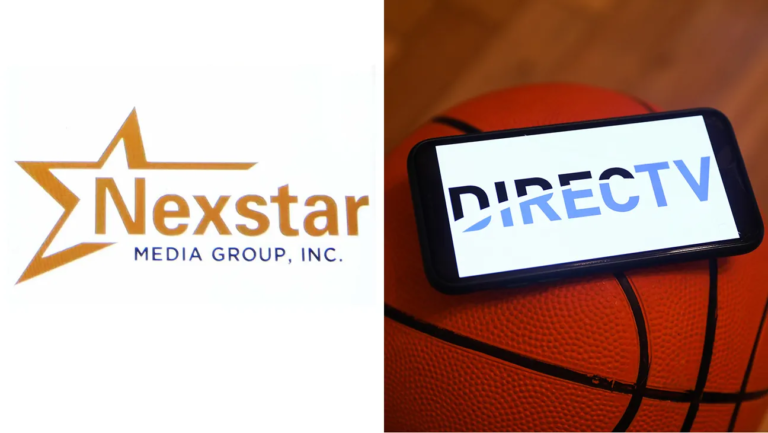The television broadcasting and content distribution industries have witnessed numerous partnerships, mergers, and acquisitions over the years, each aimed at improving service delivery, expanding customer reach, and enhancing overall viewer experience. Among these, the collaboration between Nexstar Media Group and DirecTV stands out as a significant development. This article delves into the intricacies of the Nexstar-DirecTV partnership, exploring its implications, benefits, challenges, and future prospects.
Background of Nexstar and DirecTV
Nexstar Media Group: Founded in 1996, Nexstar Media Group has grown into one of the largest television broadcasting companies in the United States. Known for its local television stations and community-focused broadcasting, Nexstar owns, operates, programs, or provides sales and other services to television stations and related digital multicast signals reaching nearly two-thirds of all US households.
DirecTV: On the other hand, DirecTV, established in 1994, is a direct broadcast satellite service provider, offering digital television and audio services to subscribers. It has been a significant player in the satellite television industry, known for its wide range of channels, including exclusive sports packages, high-definition (HD) programming, and comprehensive digital TV packages.
The Genesis of the Partnership
The partnership between Nexstar and DirecTV did not emerge in a vacuum. It was the result of a complex interplay of market dynamics, regulatory changes, and strategic planning. This collaboration was partly driven by the need to combat the increasing competition from streaming services and the changing patterns of media consumption.
Strategic Objectives
The primary objectives behind this alliance were multifaceted. For Nexstar, the partnership with DirecTV provided an opportunity to expand its content distribution, reaching a wider audience, thus increasing its advertising revenue potential. For DirecTV, collaborating with a major broadcasting group meant enriching its content offerings, especially in terms of local programming, thereby enhancing its value proposition to subscribers.
Implications of the Partnership
For the Industry
This partnership signaled a significant shift in the broadcasting and content distribution landscape. It exemplified how traditional media companies are adapting to the changing media environment by forging strategic alliances. This move was also indicative of the industry’s response to the threat posed by digital streaming platforms.
For Consumers
For consumers, the Nexstar-DirecTV partnership meant greater access to a variety of content, especially local programming. DirecTV subscribers gained access to a broader array of local news, sports, and entertainment content, which is a critical component in the television viewing experience for many.
For Advertisers
Advertisers stood to benefit significantly from this partnership. The combined reach of Nexstar’s local broadcasting and DirecTV’s national footprint created a potent platform for targeted advertising, offering advertisers access to a diverse and extensive audience.
Challenges and Controversies
Contract Disputes
Like many partnerships in the media sector, the Nexstar-DirecTV alliance has not been without its challenges. Contract disputes, often revolving around carriage fees (the fees paid by DirecTV to Nexstar for broadcasting its channels), have been a point of contention. These disputes sometimes led to temporary blackouts, affecting subscribers’ access to certain channels.
Regulatory Hurdles
Both Nexstar and DirecTV have had to navigate complex regulatory environments. Compliance with Federal Communications Commission (FCC) regulations, especially concerning media ownership and market competition, has been a critical aspect of maintaining this partnership.
Future Prospects
Looking forward, the Nexstar-DirecTV partnership is poised to evolve in response to the dynamic media landscape. The ongoing shifts toward digital streaming, changes in consumer viewing habits, and technological advancements will play pivotal roles in shaping the future of this collaboration.
Embracing New Technologies
Both Nexstar and DirecTV are expected to invest in new technologies to enhance their service offerings. This includes advancements in broadcast technology, targeted advertising, and personalized content delivery systems.
Expansion and Diversification
The partnership may also see expansion and diversification into new content areas and services. This could involve producing original content, exploring new digital platforms, or even venturing into emerging areas like virtual reality (VR) and augmented reality (AR) based broadcasting.
Conclusion
The Nexstar-DirecTV partnership represents a significant chapter in the evolving narrative of the television broadcasting and content distribution industry. By combining Nexstar’s strengths in local broadcasting with DirecTV’s expansive distribution network, this alliance has not only reshaped the market dynamics but has also set a precedent for future collaborations in the media sector. As the industry continues to adapt to the rapid changes in technology and consumer preferences, the lessons learned from this partnership will undoubtedly influence future strategic decisions and innovations.
FAQ: Understanding the Nexstar and DirecTV Relationship
What is Nexstar, and How is it Related to DirecTV?
Nexstar Media Group is a leading diversified media company that leverages localism to bring new services and value to consumers and advertisers through its traditional media, digital, and mobile media platforms. Nexstar owns, operates, acquires, or provides services to television stations and digital multicast signals reaching 68% of U.S. television households. DirecTV, on the other hand, is a multichannel video programming distributor that offers satellite television and streaming services. The relationship between Nexstar and DirecTV primarily revolves around content distribution agreements, where Nexstar provides content to be broadcasted via DirecTV’s platforms.
Why Have There Been Disputes Between Nexstar and DirecTV?
Disputes between content providers like Nexstar and distributors like DirecTV are not uncommon in the media industry. These disputes often center around the fees that the distributor (DirecTV in this case) pays to the content provider (Nexstar) for the right to broadcast their content. When contract renewal times come up, negotiations can sometimes stall if either party feels the terms being offered are not favorable. This can lead to situations where Nexstar channels are temporarily unavailable to DirecTV subscribers, much to the inconvenience of viewers.
How Do These Disputes Impact Consumers?
When Nexstar and DirecTV enter into disputes, the most immediate impact is felt by the consumers. Subscribers of DirecTV may temporarily lose access to channels and content provided by Nexstar. This can include local news, popular TV shows, and sports programming that many viewers rely on. Consumers often find themselves caught in the middle of these corporate negotiations, leading to frustration and confusion.

